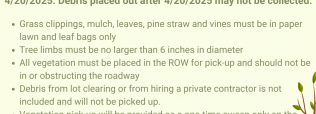Sea Oats and Bitter Panicum Cost Share Project 2025
North Topsail Beach has partnered with Coastal Transplants in a cost share project for the purchase of Sea Oats and Bitter Panicum. This project is administered through Coastal Transplants. This is an opportunity for North Topsail Beach property owners to purchase Sea Oats and Bitter Panicum at a discounted price up to a limited quantity. The Town of North Topsail Beach is splitting the cost. Delivery date options are set for May 2, 2025, May 9, 2025, May 30, 2025, and June 13, 2025. Plants will be delivered to Town Hall for pick-up on the selected delivery date. Anyone who purchases Sea Oats or Bitter Panicum, must plant them on a North Topsail Beach property. There will be an inspection two weeks after pick-up to ensure plants have been installed at the address indicated on your form.
There is a help guide for your convenience on how to calculate how many plants you will need.
Sea Oats, known as Uniola Paniculata, are the most important and widespread grass on southern coastal dunes. They produce large oat plumes during the summer months which grow 3-6 feet tall. The seed heads mature in the fall. They have lone, pale green leaves measuring less than ½ inches in width. They are drought resistant and hardy plants that are immune to some fungus infection that can plague other grasses. They are great dune stabilizers with the ability to trap wind-blown sand which will help build large sand dunes perfect for plant colonization. Extensive root systems of up to 30 feet below the surface of the sand dune help maintain dunes especially during rough weather. Because of their critical importance in maintaining healthy coastlines, Sea Oats are protected by law and it is illegal to tamper with or pick Sea Oats or the seeds.
Once established, Sea Oats require very little management. Traffic into newly planted areas should be limited. A slow-release fertilizer pellet is beneficial during early establishment; however, routine fertilization is not required.
Bitter Panicum, known as Bitter Panicgrass, Bitter Switchgrass, Seabeach Grass is a warm-season ornamental perennial beach grass in the Poaceae family. It is native to sandy dunes and shores in coastal areas from Connecticut to Florida to Texas. Var. amarulum can be found in the same areas, as well as sandflats and sandhills. It prefers well-drained, dry to medium moisture soils performing well even in infertile sandy loams. This plant is used as a dune stabilizer along the southern NC coast. It is a clumping grass and spreads by rhizomes.






